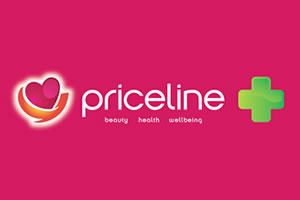Looking after your heart and maintaining heart health
Published June 25, 2021

We all know how hard our hearts work and why it’s so important to look after our heart health. But did you know there are simple things you can do every day that will have a big impact on your heart? Protect your heart and boost your wellbeing with our top heart health tips.
11 top tips for a healthy heart
1. Protect your endothelium
The endothelium is the active inner layer of your blood vessels. It plays a vital role in protecting your blood vessels. It helps regulate blood vessel tone, the adhesion of circulating blood cells and inflammation of your blood vessels.
Protecting your endothelium by following these heart health tips will help prevent damage to your arteries and promote a healthy cardiovascular system as you age.
2. Exercise
A sedentary lifestyle may contribute to high cholesterol and accumulation of unhealthy tummy fat as well as low-grade inflammation in the blood vessels. This combination harms your cardiovascular system. In contrast, physical activity decreases inflammation of the blood vessels and improves endothelial function and supports healthy circulation.
3. Socialise
Being social and catching up with friends and family can help your heart. Feeling supported socially reduces the impact of stress, enhances mental health, reduces your blood pressure, heart rate and stress hormones helping to look after your heart.
4. DASH and Mediterranean-style diets help your heart
The DASH Diet for high blood pressure
DASH stands for ‘dietary approaches to stopping hypertension’ and is a life long approach to healthy eating designed to help treat or prevent high blood pressure without medication.
The DASH diet helps you reduce the sodium in your diet and eat a variety of foods rich in nutrients that help lower blood pressure, such as potassium, calcium and magnesium. Including wholegrains, fruits, vegetables and low-fat dairy, the DASH diet lowers blood pressure and bad cholesterol.
Mediterranean Style Diet
The Mediterranean diet is based on food consumption patterns originally described in Southern Italy and Greece. It features:
- Eat most often — Leafy green vegetables, fruits, whole grains, nuts, legumes and extra virgin olive oil.
- Eat moderately — Animal protein including fish, lean meats, low-fat dairy and poultry.
- Eat least — Red meat, processed foods, sweets and wine in moderation.
5. Avoid these foods for a healthy heart
Sugary Sweet drinks
Sugar-sweetened drinks can increase your risk of obesity. High fructose corn syrup is a sweetener used in soft drinks and is associated with weight gain and increased cholesterol levels. High-fructose corn syrup is in obviously sweet foods like soft drinks and chocolate bars, but it’s also hidden in ‘healthy’ foods like sweetened yoghurt, salad dressings, frozen dinners and bread. Check ingredients carefully, avoiding anything ending in -ose, but especially corn syrup, fructose or high-fructose corn syrup.
Processed meats
Get protein in your diet from a variety of sources including fish, poultry, eggs, legumes and nuts.
Excessive alcohol
As alcohol can also be associated with increased health risks, even when consumed at low levels, your full health history needs to be taken into account before deciding what intake of alcohol is low risk for you.
Trans fats
Trans fatty acids are found naturally in small amounts in beef and dairy fat. Trans fatty acids are also in hydrogenated vegetable oils. Vegetable oils are hydrogenated to produce stable, long-lasting cooking oil for baking and deep-frying. In excess, these hydrogenated oils lead to adverse effects on cholesterol. Its recommended that you avoid these in your diet. Avoid ingredients such as partially hydrogenated vegetable oils or partially hydrogenated oil.
6. Know your numbers
Creating a holistic picture of your health helps you understand your cardiovascular health risk. You may, for example, have a healthy weight, but high blood sugar or you may be slightly overweight but have excellent blood pressure and blood sugar. You healthcare practitioner will help you understand all your numbers and what they mean for your heart health.
Blood pressure
Knowing and understanding your blood pressure numbers can help you make sure they are not too high.
Blood pressure numbers include:
- Systolic pressure — Systolic pressure is the pressure in the artery when the heart contracts.
- Diastolic pressure — Diastolic pressure is the pressure when the heart is at rest between beats.
Systolic pressure is usually the top, higher number when your blood pressure is recorded, with diastolic being the second, lower number, such as 120/80 mmHg.
The mmHg is millimetres of mercury, which is the unit used to measure blood pressure. Your blood pressure is considered high when your systolic pressure is over 140 mmHg, or your diastolic pressure is above 90 mmHg, or both are above 140/90 mmHg.
Blood sugar
If your blood sugar is too high, it can cause damage to your blood vessels and organs, such as eyes, kidneys, heart and skin.
Blood glucose levels are measured in millimoles per litre of blood (mmol/L). Target blood glucose levels may differ depending on your age and what medical conditions you may have. Normal blood glucose levels are between 4.0–7.8mmol/L.
Cholesterol
The body needs a certain amount of cholesterol for normal functioning. Aside from understanding your cholesterol levels, your family history, cultural background and health history also needs to be considered when deciding if your cholesterol is too high.
General cholesterol targets in Australia are:
- Total Cholesterol: <4.0 mmol/L (Individuals at high risk) <5.5 mmol/L (General population)
- Low Density Lipoprotein Cholesterol (LDL): < 1.8mmol/L (Individuals at high risk) < 2.0 mmol/L (General population)
- High Density Lipoprotein Cholesterol (HDL): > 1.0mmol/L
Waist circumference
The size of your waist is an indicator of unhealthy tummy fat or intra-abdominal fat. Healthcare professionals look at your body mass index (see below) and your waist circumference to help determine your risk of developing cardiovascular and metabolic conditions. Waist circumference measurements for women should be less than 80 cm and less than 94 cm for men.
Body Mass Index
The body mass index is an easy measure used to estimate your body fat percentage. To calculate your BMI divide your weight in kilograms by the square of your height in metres.
For example, if you weigh 70 kgs and you are 172cm in height, your BMI would be 70 divided by 1.722 = 23.66
A BMI of:
- less than 19 kg/m2 is considered underweight
- 20 to 25 kg/m2 is considered a healthy weight range for young and middle-aged adults
- 26 to 30 kg/m2 is considered overweight
- 30 kg/m2 and over is considered obese.
Your BMI and waist circumference together will help your healthcare practitioner identify your health risks.
7. Boost your CoQ10
Coenzyme Q10 (CoQ10) is found in every cell in your body. It’s an antioxidant that helps your cells make energy. While you get small amounts of CoQ10 from your diet, your body also makes it with your body’s ability to make CoQ10 decreasing as you age.
Your heart has high levels of CoQ10. Your heart uses CoQ10 to make energy, to support healthy blood pressure and as an antioxidant to reduce oxidation of bad cholesterol.
Dietary sources of CoQ10 include oily fish (such as salmon and tuna), organ meats (such as liver), and wholegrains.
8. Magnesium regulates heart contraction
Magnesium is needed to help regulate the contraction of muscle and supports heart health when dietary intake is inadequate. It helps nerves send signals and helps maintain healthy blood sugar.
Dietary sources of magnesium include leafy green vegetables, legumes, nuts and seeds and wholegrains.
9. Quit Smoking
Quitting smoking helps protect your blood vessels from damage. According to the World Health Organisation, quitting smoking will reduce your risk of stroke.
10. Increase your antioxidants
Antioxidants help protect your blood vessels as you age and can reduce oxidative damage. Foods high in antioxidants include berries, orange, green and red vegetables, green tea and red wine. Many antioxidants are available as supplements. These include:
- Ginkgo biloba — Ginkgo has antioxidant properties, reducing free radicals formed in the body.
- Resveratrol — Resveratrol is a potent antioxidant found in grape skin.
- Curcumin — Curcumin is an anti-inflammatory antioxidant compound found in turmeric.
11. Think positively
A study looking at 8000 middle-aged public servants in Britain found participants with a more optimistic life view, showed a twenty to thirty per cent lower risk of a suffering a cardiovascular incident. Positive wellbeing is also linked to better immune, neuroendocrine, and cardiovascular functioning, as well as a better response to stress.
Looking after your heart involves making healthy choices throughout your day. Quitting smoking, increasing exercise and eating a healthy meal with family and friends can all help support heart health. Knowing your waist circumference and BMI can also help you keep track of your cardiac risk.
Adding magnesium or CoQ10 supplements to your regime can help support the heart muscle and help protect your heart from oxidative damage. Speak to your healthcare practitioner to see if supplementation is right for you.
MAT-AU-2100678
Learn about which Nature's Own product may be appropriate for you.
SEE THE PRODUCTS HERE







